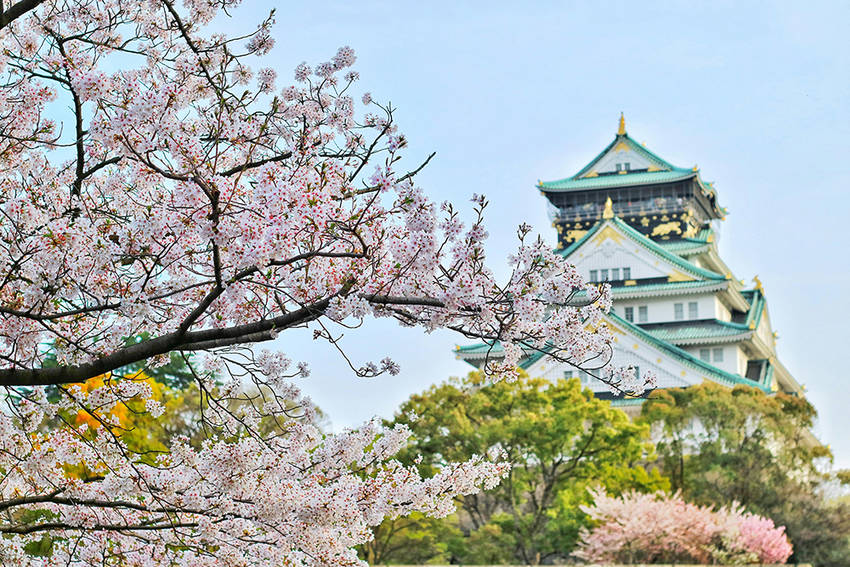
関西弁は、日本国内で非常に親しみを持たれている方言の一つで、その魅力は多岐にわたります。以下に、関西弁が愛される理由をいくつか挙げてみます。
1. ユーモアと親しみやすさ
関西弁は特にユーモラスで親しみやすいと言われています。関西地方、特に大阪は「笑いの文化」が根付いている地域で、関西弁で話されると何気ない会話でも明るく、楽しい雰囲気になることが多いです。コメディアンやバラエティ番組でも、関西弁は笑いを引き出すためによく使われています。
2. 独特のリズムとイントネーション
関西弁は他の日本語の方言に比べて、リズムやイントネーションがはっきりしていて、耳に残りやすいという特徴があります。音の上がり下がりや語尾の「~やん」「~ねん」など、聞くだけで元気になれる響きが多く含まれており、多くの人が心地よく感じます。
3. ドラマや映画での使用
関西弁は多くのドラマや映画でも使われており、特に大阪を舞台にした作品ではよく聞かれます。これにより、関西弁は日本全国の視聴者に親しまれ、自然に浸透していきました。関西弁を話すキャラクターが登場すると、視聴者は親近感を抱きやすくなります。
4. 個性と強調
関西弁は自己表現が豊かな方言とされ、話す人の個性を引き立てます。「ほんまや」「なんでやねん」など、感情を強調する表現が多く、友達同士の軽い会話からビジネスの場面まで幅広く使われます。これが、関西弁を話す人々が明るく、エネルギッシュな印象を与える理由の一つです。
5. 全国的な影響力
関西弁は関西地域以外でも話す人が多く、若者を中心に全国で流行しています。SNSや動画コンテンツで関西弁が広く使われることで、地域に関係なく、多くの人々にとって親しみ深い言葉となっています。
6. 「関西人」のキャラクターとしての魅力
関西弁を話す人たちは、しばしばフレンドリーでユーモラスなキャラクターとして描かれることが多いです。この「関西人」らしいおおらかで快活なイメージが、関西弁の魅力をさらに引き立てています。特に、お笑い芸人やタレントの活躍によって、全国的に「関西弁=面白い」「関西人=陽気」というポジティブなイメージが定着しています。
関西弁は、その明るい響きやユーモラスな性質、全国的な普及力によって、日本で最も愛される方言の一つとなっています。その独特のリズムや表現方法は、聞く人々に元気や親しみを感じさせ、日常会話からエンターテインメントまで広く使われています。
* 関西弁の「しらんけど」は、会話の最後に付け加えられるフレーズで、「自信がないけど…」「知らないけど…」というニュアンスを持ちます。確実ではない情報を伝える際や、冗談っぽく責任回避をするために使われ、会話を柔らかくしたり軽い印象を与える効果があります。
1. ユーモアと親しみやすさ
関西弁は特にユーモラスで親しみやすいと言われています。関西地方、特に大阪は「笑いの文化」が根付いている地域で、関西弁で話されると何気ない会話でも明るく、楽しい雰囲気になることが多いです。コメディアンやバラエティ番組でも、関西弁は笑いを引き出すためによく使われています。
2. 独特のリズムとイントネーション
関西弁は他の日本語の方言に比べて、リズムやイントネーションがはっきりしていて、耳に残りやすいという特徴があります。音の上がり下がりや語尾の「~やん」「~ねん」など、聞くだけで元気になれる響きが多く含まれており、多くの人が心地よく感じます。
3. ドラマや映画での使用
関西弁は多くのドラマや映画でも使われており、特に大阪を舞台にした作品ではよく聞かれます。これにより、関西弁は日本全国の視聴者に親しまれ、自然に浸透していきました。関西弁を話すキャラクターが登場すると、視聴者は親近感を抱きやすくなります。
4. 個性と強調
関西弁は自己表現が豊かな方言とされ、話す人の個性を引き立てます。「ほんまや」「なんでやねん」など、感情を強調する表現が多く、友達同士の軽い会話からビジネスの場面まで幅広く使われます。これが、関西弁を話す人々が明るく、エネルギッシュな印象を与える理由の一つです。
5. 全国的な影響力
関西弁は関西地域以外でも話す人が多く、若者を中心に全国で流行しています。SNSや動画コンテンツで関西弁が広く使われることで、地域に関係なく、多くの人々にとって親しみ深い言葉となっています。
6. 「関西人」のキャラクターとしての魅力
関西弁を話す人たちは、しばしばフレンドリーでユーモラスなキャラクターとして描かれることが多いです。この「関西人」らしいおおらかで快活なイメージが、関西弁の魅力をさらに引き立てています。特に、お笑い芸人やタレントの活躍によって、全国的に「関西弁=面白い」「関西人=陽気」というポジティブなイメージが定着しています。
関西弁は、その明るい響きやユーモラスな性質、全国的な普及力によって、日本で最も愛される方言の一つとなっています。その独特のリズムや表現方法は、聞く人々に元気や親しみを感じさせ、日常会話からエンターテインメントまで広く使われています。
* 関西弁の「しらんけど」は、会話の最後に付け加えられるフレーズで、「自信がないけど…」「知らないけど…」というニュアンスを持ちます。確実ではない情報を伝える際や、冗談っぽく責任回避をするために使われ、会話を柔らかくしたり軽い印象を与える効果があります。
One of Japan’s Most Beloved Dialects: Kansai
Kansai-ben is one of Japan’s most well-liked dialects and its appeal is manifold. Below are some of the reasons why the Kansai dialect is so beloved. Shirankedo*.
*Japanese people who speak in the Kansai dialect add the phrase, “shirankedo” at the end of a conversation with the nuanced meaning of “I’m not sure…” or “I don’t know”. People use it to deliver uncertain information or to avoid responsibility in a joking manner. “Shirankedo” also helps soften a conversation by giving it a light impression.
1. Humor and Friendliness
People say the Kansai dialect is particularly humorous and friendly. The Kansai region, especially Osaka, is rooted in a “culture of laughter”. Even casual conversation often takes on a cheerful, fun atmosphere when spoken in the Kansai dialect. Comedians and variety shows often use the Kansai dialect to elicit laughter.
2. Unique Rhythm and Intonation
Compared to other Japanese dialects, the Kansai dialect has a distinct rhythm and intonation that’s easy on the ear. The rising and falling of sounds and ending words with “~yan” and “~nen” contain many energetic sounds that many people find pleasant to listen to.
3. Use in Dramas and Movies
Many dramas and movies also use the Kansai dialect, especially ones set in Osaka. This has made the Kansai dialect familiar and natural to viewers throughout Japan. Viewers therefore easily feel a sense of familiarity with characters who speak in the Kansai dialect.
4. Individuality and Emphasis
People also consider the Kansai dialect rich in self-expression and one that enhances a speaker’s individuality. People use it in a wide range of situations, from a light conversation amongst friends to business situations. This is one of the reasons why people who speak in the Kansai dialect seem cheerful and energetic.
5. Nationwide Influence
Even many people outside the Kansai region speak Kansai-ben as it’s become a nationwide trend, especially among young people. Its widespread use on social media and video content has made it a familiar language to many people, no matter where they live.
6. The “Kansai-jin” Appeal as Characters
Media often portray people who speak Kansai-ben as friendly and humorous characters. This generous and vivacious image typical of “Kansai-jin” further enhances the appeal of the Kansai dialect. Particularly, many people throughout the country have attributed the positive image of “Kansai-ben = funny” and “Kansai-jin = cheerful”, thanks to comedians and TV personalities.
The Kansai dialect has become one of the most beloved dialects in Japan due to its cheerful sound, humorous nature, and nationwide popularity. Its distinctive rhythm and mode of expression make people who hear it feel energized and familiar, and people widely use it in everything from everyday conversation to entertainment.
*Japanese people who speak in the Kansai dialect add the phrase, “shirankedo” at the end of a conversation with the nuanced meaning of “I’m not sure…” or “I don’t know”. People use it to deliver uncertain information or to avoid responsibility in a joking manner. “Shirankedo” also helps soften a conversation by giving it a light impression.
1. Humor and Friendliness
People say the Kansai dialect is particularly humorous and friendly. The Kansai region, especially Osaka, is rooted in a “culture of laughter”. Even casual conversation often takes on a cheerful, fun atmosphere when spoken in the Kansai dialect. Comedians and variety shows often use the Kansai dialect to elicit laughter.
2. Unique Rhythm and Intonation
Compared to other Japanese dialects, the Kansai dialect has a distinct rhythm and intonation that’s easy on the ear. The rising and falling of sounds and ending words with “~yan” and “~nen” contain many energetic sounds that many people find pleasant to listen to.
3. Use in Dramas and Movies
Many dramas and movies also use the Kansai dialect, especially ones set in Osaka. This has made the Kansai dialect familiar and natural to viewers throughout Japan. Viewers therefore easily feel a sense of familiarity with characters who speak in the Kansai dialect.
4. Individuality and Emphasis
People also consider the Kansai dialect rich in self-expression and one that enhances a speaker’s individuality. People use it in a wide range of situations, from a light conversation amongst friends to business situations. This is one of the reasons why people who speak in the Kansai dialect seem cheerful and energetic.
5. Nationwide Influence
Even many people outside the Kansai region speak Kansai-ben as it’s become a nationwide trend, especially among young people. Its widespread use on social media and video content has made it a familiar language to many people, no matter where they live.
6. The “Kansai-jin” Appeal as Characters
Media often portray people who speak Kansai-ben as friendly and humorous characters. This generous and vivacious image typical of “Kansai-jin” further enhances the appeal of the Kansai dialect. Particularly, many people throughout the country have attributed the positive image of “Kansai-ben = funny” and “Kansai-jin = cheerful”, thanks to comedians and TV personalities.
The Kansai dialect has become one of the most beloved dialects in Japan due to its cheerful sound, humorous nature, and nationwide popularity. Its distinctive rhythm and mode of expression make people who hear it feel energized and familiar, and people widely use it in everything from everyday conversation to entertainment.
sign up for the Japanese-Online Newsletter
__..-・**・-..__..-・**・-.._ あいうえお かきくけこ さしすせそ たちつてと なにぬねの はひふへほ まみむめも やいゆえよ らりるれろ わゐうゑを ん __..-・**・-..__..-・**・-.._
#JapaneseOnline #LearningJapanese #FreeJapaneseLessons #JapaneseVideoLearning #JapaneseAnime #Anime #JapaneseFood #Bloguru
